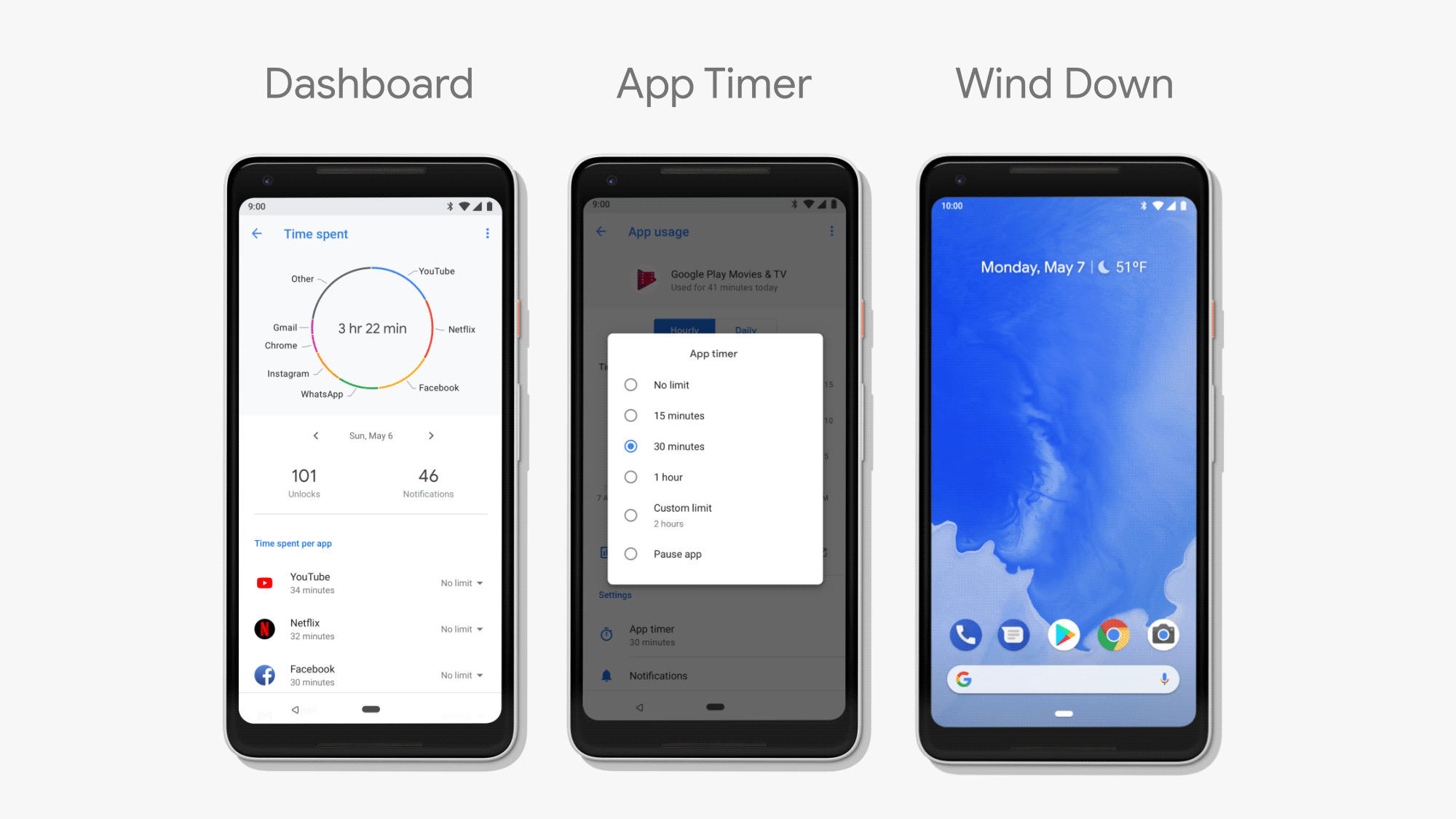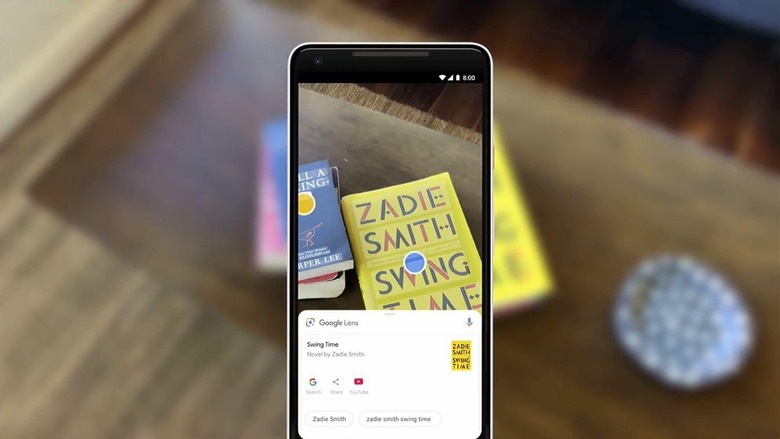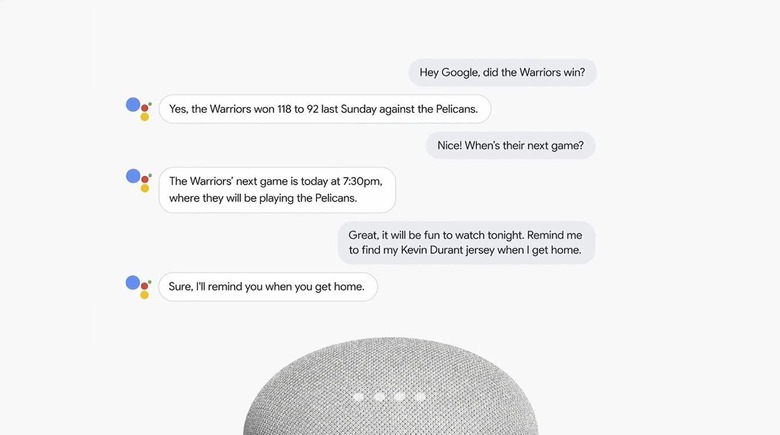Google's AI-Powered Future Is Convenient, Wonderful, And Scary
Google wants to make the world a better place by making it smarter and, perhaps by extension, making us lazier. All throughout its I/O 2018 presentation, AI, machine learning, and neural networks take center stage to relieve our brains of most of the cognitive workload and thereby free us to do and enjoy the more important things in life. There is, however, no such thing as a free lunch and everything comes at a price. And the price we'll eventually have to pay for Google's wonderful future is our privacy. At least some of it or maybe even all of it.
Picture an idyllic future where you simply turn on your smartphone's camera and point it at something and you will receive everything there is to know about that monument, that flower, or your friend's wardrobe preferences. How about receiving recommendations to places that are sure to inspire or interest you, not just some spots with 5 stars from random strangers or distant friends you haven't seen in years. And without even selecting sources or topics, your news feed will be filled with headlines that pique your curiosity or warm your heart.
That's the effortless, frictionless, and convenient future that Google is trying to paint. It's a future that is basically powered by two things: Google's machine learning and your personal data. On a purely technical and detached level, it's a fair exchange and even a requirement. A neural network needs data to grow and it can only learn about your preferences and habits if you give it your data, consistently and continually.
These days, however, there is no such thing as purely technical and detached. The "free with ads" world has steered us unto a point of no return. And whether you like it or not, and whether companies admit it or not (spoiler alert: they won't), your data, not you, is their most important commodity.

Of course, every company would like to paint itself as a bastion of privacy and respect. Google, especially, was once notorious for its motto of "don't be evil", which it eventually dropped after it was repeatedly proven it can't exactly keep to that standard and still make the huge profit it makes today. It isn't running a charity nor is it a philanthropic institution.
Google's AI-driven future will only exist if we give it enough data. And mind, not just yours but everyone else's as well. Its neural networks have to learn from thousands if not millions of pieces of data, not just from a single person. Of course, Google will have some safeguards in place to keep damage to a minimum. It's legally required to. Some pieces of data will only be kept locally on your device. Others, like conversations Google Home will be able to listen to 24/7, won't be recorded at all. And Google has a privacy dashboard you can delete information from.

Most of these, however, are "after the fact" options. And many can be turned off at the price of convenience. It's a convenience that will be hard to ignore as the years go by, when everything around us gets connected to the Internet and gets automated. It's a convenience few will be able to refuse eventually.
Hopefully that will be a future where most people will have gone through the series of privacy scandals and fiascos that rocked our tech world. Hopefully, by then it will also be easier and more convenient to keep track of and protect our privacy. With AI taking care of most of our mundane concerns, hopefully we would have enough time to focus on those more critical things in life that no AI can do for us.

